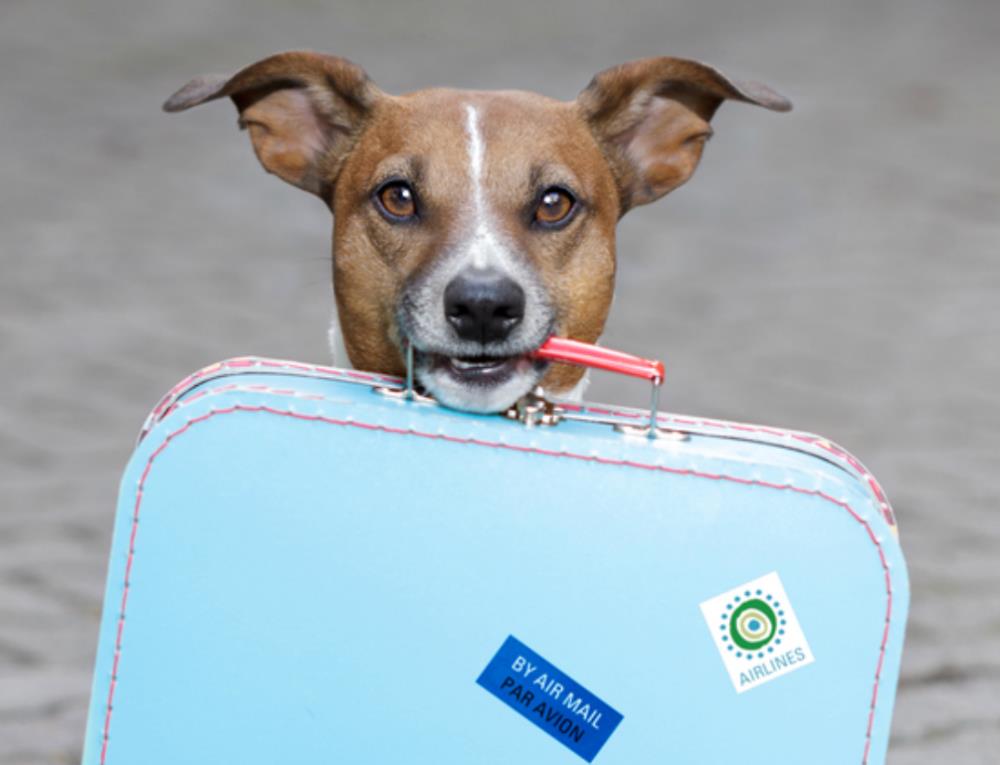How Travel Insurance for Pets Ensures a Stress-Free Vacation

Planning to travel abroad with your furry friend this summer? Learn how pet travel insurance can safeguard you against unexpected vet bills and offer peace of mind.
Leaving your dog or cat with a pet-sitter or at a kennel while you go on holiday is never fun. Traveling, especially abroad or when relocating with your pet, can be unpredictable. With all the paperwork and health concerns, you might wonder if pet travel insurance is worth it.
In short, a solid travel insurance policy for your pet provides complete peace of mind regarding their health. Your dog or cat will receive expert care during your travels, without causing you to drain your bank account on vet fees.
Here’s how pet travel insurance works and why you should consider it before your next vacation. Let’s dive in.
What does pet travel insurance cover?

Pet travel insurance serves as a vital financial safety net in case your pet experiences accidental injury, gets lost, or requires quarantine while accompanying you on travels abroad. It ensures that your beloved companion receives prompt and professional care in the event of an unforeseen accident or injury while away from home.
Most pet travel insurance policies cover for:
Usually bundled within existing pet insurance policies or offered as an additional add-on, pet travel insurance covers a range of contingencies:
- Overseas Vet Fees: This provision covers the expenses associated with treating your pet for illness or injury while journeying abroad.
- Quarantine Costs: Should your pet fall ill and necessitate quarantine before returning home, pet travel insurance assists in mitigating the significant financial burden.
- Loss of Travel Documents: If you misplace your pet’s travel documents, your policy may facilitate covering the costs involved in replacing them.
- Emergency Expenses Abroad: In the unfortunate event of your pet going missing or becoming lost, the insurance policy typically covers expenses such as transportation to reunite you with your pet post-illness or injury.
- Trip Cancellation: In situations where you must cancel or curtail your holiday due to your pet’s illness or injury, especially if it’s a severe case requiring immediate treatment, pet insurance may offer reimbursement for associated costs.
Why Travel Pet Insurance Matters

Traveling with your pet is an adventure, but it also involves risks. From lost travel documents to unexpected illnesses, mishaps can occur. Here’s how pet insurance can ease your worries:
- Emergency Preparedness: Imagine losing your pet’s travel documents or their microchip failing during a trip. With pet insurance, you’re prepared for such emergencies.
- Peace of Mind: Knowing that your pet is covered provides peace of mind. Whether it’s illness or an accident, you can focus on enjoying your trip.
- Avoiding Quarantine: Some countries require quarantine for pets. Pet insurance helps you avoid this by ensuring your pet’s health and vaccination records are up-to-date.
Key Considerations
- Policy Variations: Understand that every pet insurance policy is different. Read the fine print to know what’s covered and avoid surprises.
- Duration of Coverage: Most pet travel insurance policies cover specific time periods (usually around 60 days per year). For example, Tractive Pet Cover allows up to 30 days per trip, with a total of 60 days annually.
- Legal Requirements: While not mandatory, pet insurance is recommended. It’s not just about legality; it’s about caring for your pet’s well-being.
Pet Travel Scheme (PETS)

To avoid quarantine, consider the Pet Travel Scheme (PETS):
- Requirements:
- Microchip
- Up-to-date rabies vaccination
- Animal Health Certificate
- Proof of flea, tick, and tapeworm treatment
- Animal Health Certificate:
- Obtain it from your vet.
- Valid for specific durations (e.g., 10 days for entry into the EU).
- Talk to Your Vet: Plan vaccinations at least 21 days before travel.
Remember, pet travel insurance ensures a smoother journey, so you can focus on creating memories with your furry friend!
What are some common exclusions in pet travel insurance?

When it comes to pet travel insurance, there are several common exclusions you should be aware of:
- Pre-existing Conditions: Pet insurance typically doesn’t cover injuries or illnesses that existed before your coverage started or during waiting periods.
- Failure to Take Due Care or Abuse: Insurers won’t pay out claims if your pet is injured due to evident malicious acts or negligence.
- Ambulance Costs: Some policies exclude transportation costs for sick animals, so check your level of coverage.
Remember to review your specific policy carefully to understand all exclusions and ensure you’re well-informed!
Myths about pet travel insurance

Let’s debunk some common myths about pet travel insurance:
- Pet Insurance Is Too Expensive: While costs vary, pet insurance can be affordable. Consider the peace of mind it provides during travel.
- Coverage Is Limited: Pet travel insurance covers emergencies, illnesses, and accidents during trips. It’s not just for businesses; pet owners can benefit too.
- Young Pets Don’t Need It: Actually, it’s best to get insurance when your pet is young and healthy. Premiums increase as pets age.
- Travel Insurance Covers Pets: Regular travel insurance rarely includes pets. It’s designed for human travelers, not furry companions.
- Pet Emergencies Aren’t Valid Cancellation Reasons: Unfortunately, most trip cancellation policies don’t consider pet emergencies as valid reasons for cancellation
- Pet Insurance Only Covers Vet Visits: Pet health insurance covers vet visits, but pet travel insurance focuses on the journey itself.
- It’s Only for Air Travel: Pet travel insurance applies to various modes of transportation, not just flights.
- Pre-existing Conditions Aren’t Covered: Like health insurance, pre-existing conditions may not be covered initially.
- Pet Insurance Is Complicated: It has moving parts, but understanding the options helps you make informed choices
- It’s Not Worth It: Consider the unexpected costs of pet emergencies during travel. Insurance can be a lifesaver!



